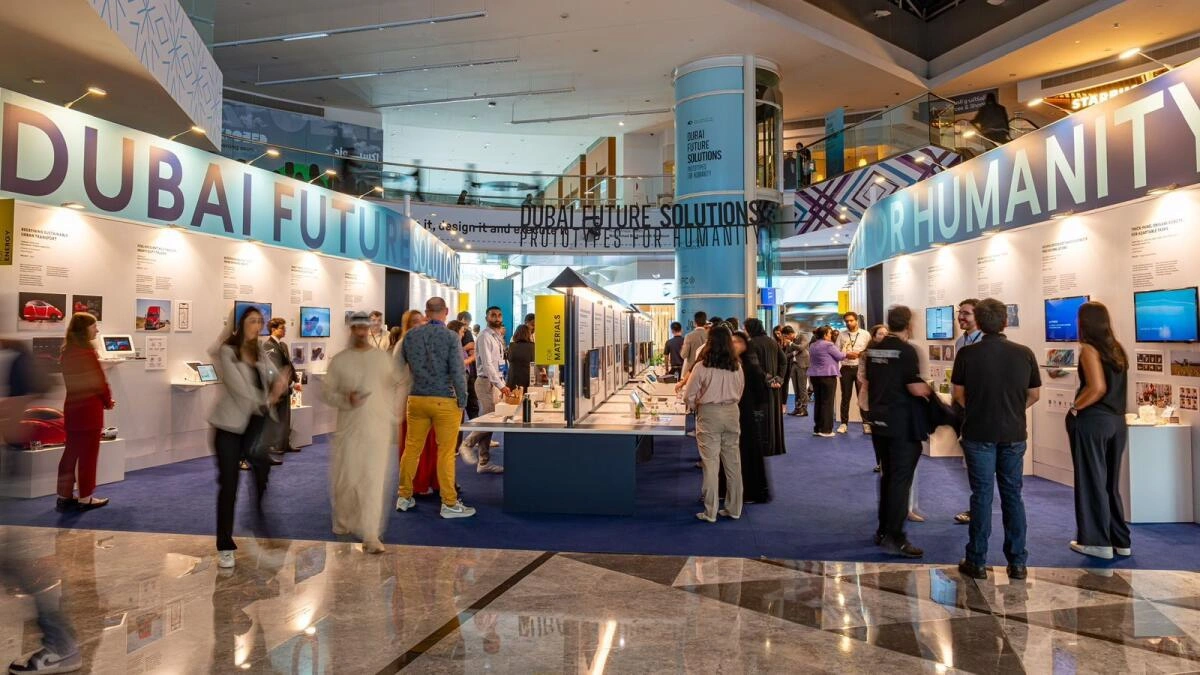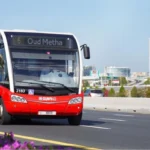The UAE is driving groundbreaking innovations, introducing sustainable solutions that tackle critical challenges in construction and elderly care. Two notable projects stand out: a sustainable concrete block initiative and an AI-powered elderly care monitoring system.
Sustainable Concrete Blocks Absorb CO₂
Concrete blocks are essential in modern construction but are known for their high environmental impact, particularly CO₂ emissions. A UAE-based project is reshaping the industry by developing ECO2 Blocks—low-carbon, sustainable concrete blocks that absorb up to 500 grams of CO₂ per unit instead of emitting it.
Jad Bawab, a PhD candidate specializing in Concrete Technology at UAE University, shared insights at the Dubai Future Solutions – Prototypes for Humanity 2024 event.
These blocks are made using 80% waste materials, diverting landfill waste to production lines, and reducing production costs by 20%. Additionally, the innovative process eliminates the need for water and energy during curing, significantly cutting the carbon footprint by 40%.
“This initiative directly supports the UAE’s Net Zero 2050 goals by offering affordable, sustainable alternatives for construction. The ECO2 Blocks not only reduce emissions but also trap carbon within the blocks, enabling greener practices,” said Bawab.
The project is set to launch a pilot program to produce full-scale blocks meeting UAE’s rigorous standards, paving the way for widespread adoption.
AI-Powered Elderly Care Monitoring with ElephasCare
In healthcare, ElephasCare, an innovative AI-powered monitoring system, is transforming long-term elderly care. Developed by Hajar Abedi, Chief Scientific Officer of ElephasCare, this radar-based system offers a non-visual, non-wearable solution for monitoring residents’ activities while preserving privacy.
Unlike cameras or wearable devices, ElephasCare uses radar technology to interpret electromagnetic waves and detect activities such as falling, lying down, or sitting. It can also monitor vital signs like breathing, overcoming the challenges posed by privacy concerns or wearables’ practicality issues.
“The system is discreet, resembling a Wi-Fi router, and can be installed on a wall to monitor specific areas without invading privacy. Since radar waves can penetrate objects, it is highly effective in real-world environments,” said Hajar.
Currently deployed in a long-term care facility in Canada with 150 rooms, the technology has shown promising results. ElephasCare plans to expand into the UAE, addressing local market demands.
Connecting Innovations to Real-World Solutions
Tadeu Baldani Caravieri, Director of Prototypes for Humanity, highlighted the importance of connecting these innovations to practical applications. “Our goal is to enable these technologies to transition from lab environments to real-world pilots. If successful, they can achieve commercial viability and drive meaningful impact,” he said.
These initiatives underscore the UAE’s commitment to sustainability and technological advancements, setting benchmarks in construction and healthcare innovation.









